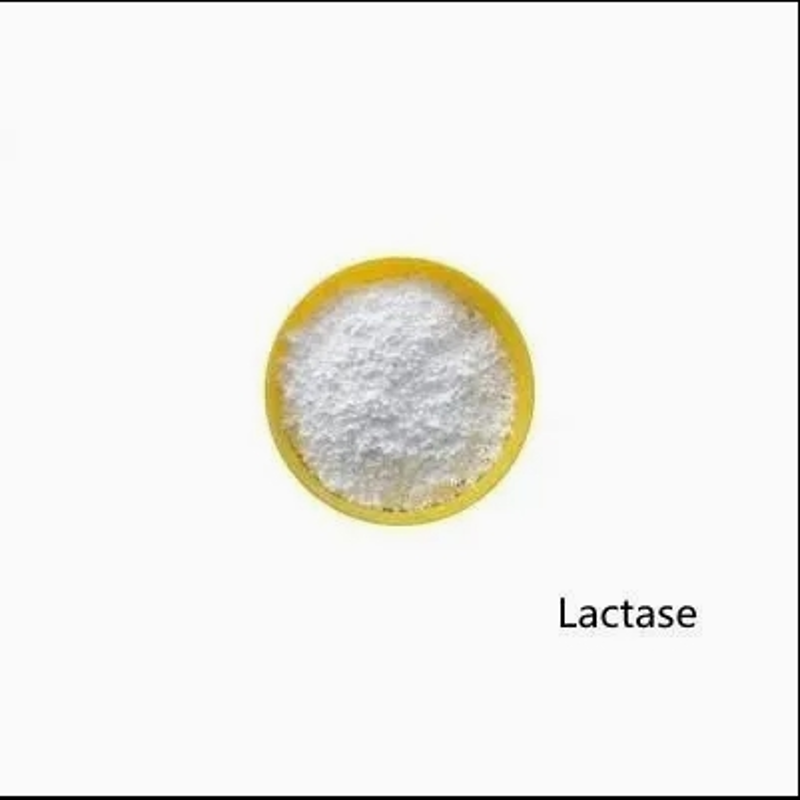-
Categories
-
Pharmaceutical Intermediates
-
Active Pharmaceutical Ingredients
-
Food Additives
- Industrial Coatings
- Agrochemicals
- Dyes and Pigments
- Surfactant
- Flavors and Fragrances
- Chemical Reagents
- Catalyst and Auxiliary
- Natural Products
- Inorganic Chemistry
-
Organic Chemistry
-
Biochemical Engineering
- Analytical Chemistry
-
Cosmetic Ingredient
- Water Treatment Chemical
-
Pharmaceutical Intermediates
Promotion
ECHEMI Mall
Wholesale
Weekly Price
Exhibition
News
-
Trade Service
Recently, Shandong Academy of Agricultural Sciences Agricultural Products Processing and Nutrition Research Institute of grain and oil engineering innovation team in nutrition a district journal "Critical Reviews in Food Science and Nutrition " (IF = 11.
176) entitled the "Effects of whole grain intake on glycemic traits: A systematic review and meta-analysis of randomized coThe ntrolled trials" paper systematically evaluated the effect of whole grain intake on blood glucose metabolism in different populations
.
176) entitled the "Effects of whole grain intake on glycemic traits: A systematic review and meta-analysis of randomized coThe ntrolled trials" paper systematically evaluated the effect of whole grain intake on blood glucose metabolism in different populations
.
At present, there are more than 113 million diabetic patients in China, and about 350 million pre-diabetic patients, causing heavy medical and social burdens
.
Nutritional intervention is an important means to prevent and treat diabetes
.
Although studies have shown that whole grains have various health benefits such as lowering blood sugar and improving insulin sensitivity, the applicable population, effective intake and effective intake period of whole grain foods are still unclear
.
These problems have restricted the development of whole grain products, patients have fewer products to choose from, and the whole grain industry has developed slowly
.
.
Nutritional intervention is an important means to prevent and treat diabetes
.
Although studies have shown that whole grains have various health benefits such as lowering blood sugar and improving insulin sensitivity, the applicable population, effective intake and effective intake period of whole grain foods are still unclear
.
These problems have restricted the development of whole grain products, patients have fewer products to choose from, and the whole grain industry has developed slowly
.
Systematic review is the highest evidence in the clinical evaluation system
.
In response to the above problems, the grain and oil engineering innovation team of the Institute of Agricultural Products included 48 randomized controlled clinical studies, covering 4118 patients, and systematically evaluated the effect of whole grain food intake on the body's blood glucose metabolism, and explored the relationship between dose-effect and time-effect
.
The results show that: whole grain intake can significantly reduce fasting blood glucose (0.
15 mmol/L), insulin (2.
71 pmol/L), glycosylated hemoglobin (0.
44%) and insulin resistance index (0.
28); whole grain intake is good for diabetic patients and healthy Both people and obese people are beneficial; the effect of oatmeal is more pronounced than brown rice, wheat and other grains; multiple intakes a day can consolidate the health effects of whole grain foods more than a single intake.
The recommended intake is 100 g/d, The recommended intake time is more than 8 weeks
.
The results of the paper show that, compared with non-whole-grain foods, whole-grain foods can significantly improve the body's blood glucose metabolism, and it is recommended to increase the daily intake
.
.
In response to the above problems, the grain and oil engineering innovation team of the Institute of Agricultural Products included 48 randomized controlled clinical studies, covering 4118 patients, and systematically evaluated the effect of whole grain food intake on the body's blood glucose metabolism, and explored the relationship between dose-effect and time-effect
.
The results show that: whole grain intake can significantly reduce fasting blood glucose (0.
15 mmol/L), insulin (2.
71 pmol/L), glycosylated hemoglobin (0.
44%) and insulin resistance index (0.
28); whole grain intake is good for diabetic patients and healthy Both people and obese people are beneficial; the effect of oatmeal is more pronounced than brown rice, wheat and other grains; multiple intakes a day can consolidate the health effects of whole grain foods more than a single intake.
The recommended intake is 100 g/d, The recommended intake time is more than 8 weeks
.
The results of the paper show that, compared with non-whole-grain foods, whole-grain foods can significantly improve the body's blood glucose metabolism, and it is recommended to increase the daily intake
.
This paper is the first systematic review to comprehensively evaluate the effects of whole grain foods on blood glucose metabolism in people with different health conditions.
Into the cycle, it provides strong data support for the development of whole grain products and clinical whole grain food intervention
.
Into the cycle, it provides strong data support for the development of whole grain products and clinical whole grain food intervention
.
The Agricultural Products Processing and Nutrition Research Institute is the first unit.
Associate researchers Li Shixiang and Zong Aizhen are the co-first authors.
Researchers Du Fangling and Xu Tongcheng are the co-corresponding authors
.
The research was funded by the National Key Research and Development Program and other topics
.
Associate researchers Li Shixiang and Zong Aizhen are the co-first authors.
Researchers Du Fangling and Xu Tongcheng are the co-corresponding authors
.
The research was funded by the National Key Research and Development Program and other topics
.
Link to the paper: https://doi.
org/10.
1080/10408398.
2021.
2001429
org/10.
1080/10408398.
2021.
2001429







